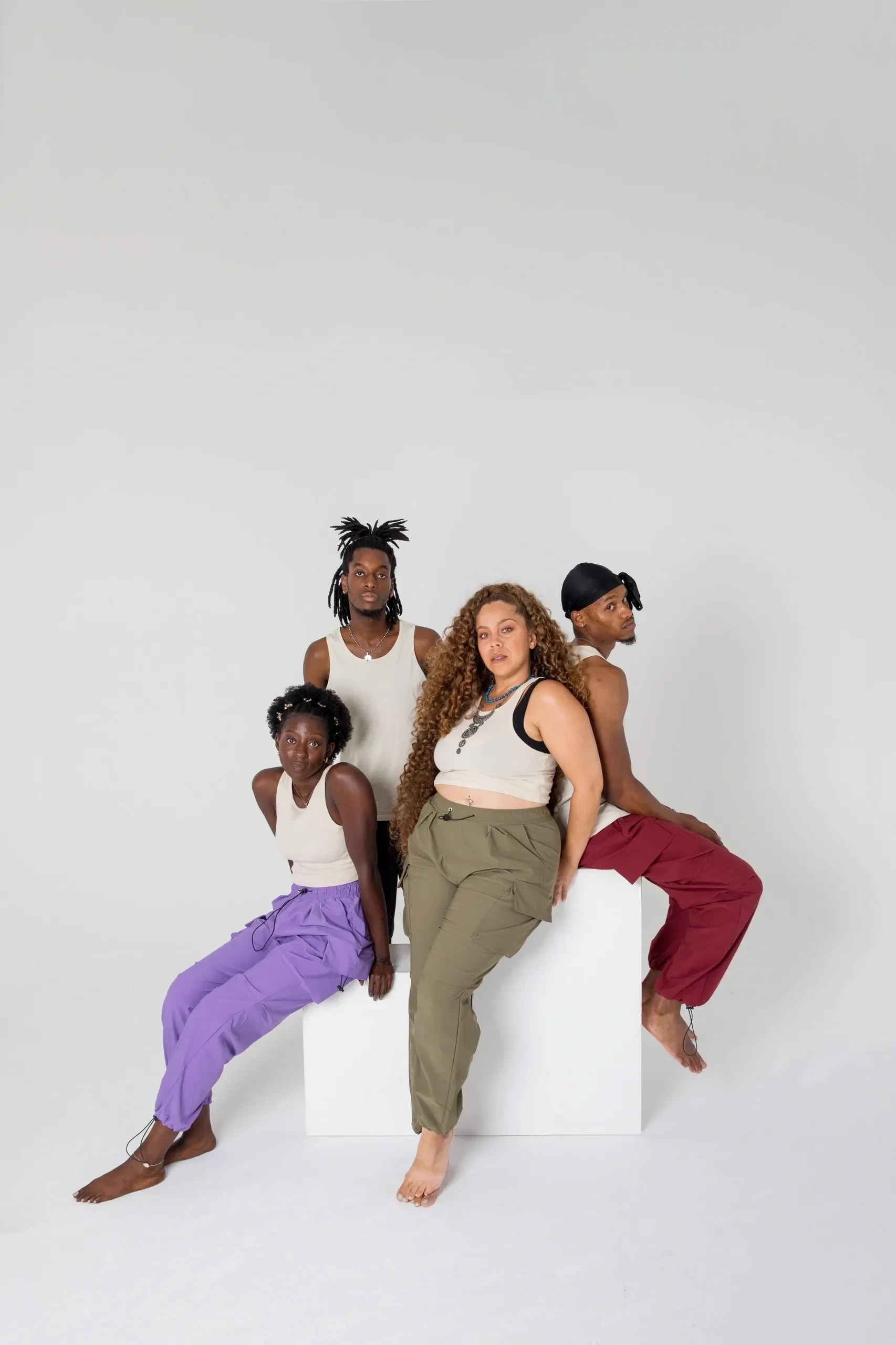Scenes with Black Folk by Joy Nesbitt – ★★☆☆☆
“We’re going to put on a show because we know you like to watch… A show, a conversation, a ritual, an exorcist.”
Quirky excursions shouldn’t be reserved for the weekend. Every now and then we should enjoy a stimulating, creative midweek moment, which is why I caught Scenes with Black Folk at Camden People’s Theatre on an otherwise ordinary Wednesday. What unfolded was a fast-paced and frantic crash course in music, a brief history of the transatlantic slave trade, and the expansive nature of the Black experience, or more specifically — four Black experiences shaped by actors Kennedy Jopson, Ryan Yengo, Joycelyn Manu and Jay Lafayette Valentine.
The show took a very socially aware, Brechtian approach. Each of the ten scenes were numbered, and labelled with titles such as “Interpretative Dance”, “History” and "Letting Go”. This gave an otherwise structureless piece some essence of formation and context. The studio set was minimal, with only a medium-sized bowl and dried flowers stage-right at the beginning.
.
Not long into the start of the play, the actors start contemplating their existence, their identity and their “somethingness”, which is one of the core ideas of wonder and meaning throughout the show. They all form a circle to perform a manifestation-style ritual to affirm their somethingness, and give honour to an unnamed, ominous higher power, and their ancestors which raises the question: “What does Black adjacent spirituality look like outside of the realm of the Abrahamic faiths?”
Scenes with Black Folk is an intense 75 minutes of seeing how far writer and director Joy Nesbitt can push the boundaries with experimentative performance, education, expression and lecturing. Together, the audience and the cast experience musical motifs, humour, sprinkles of joy, moments of mental torture, and are forced to confront stereotypes and come face to face with the West’s abhorrent past. They tackle a myriad of topics that plague a colonised mind, from doubting one’s worth, attraction, intelligence and so forth. They travel between modern day musings, and back to what being a slave was like, analysing similarities and differences in the Black psyche between then and now, exposing generational traumas, patterns and differences.
Throughout the play the actors shift from being aware that they are performing in front of a crowd and breaking the fourth wall, to getting completely lost in their characters. There were skillfully silly moments of comedic relief that spotlight genuine American pop/political culture references such as Obama impersonations and Fergie’s out of tune rendition of the national anthem, but also very sobering moments, including the 1712 recital of slaveowner William Lynch’s ‘The Making of a Slave’ speech.
As far as experimental theatre goes, I could see the vision of where Scenes with Black Folk intended to go, but the final production didn’t fit together as a cohesive piece. The narrative would have benefited from certain areas given more time and space to develop, but the satire felt overcooked, and certain scenes lingered far beyond their impact.
History isn’t always comfortable, and calling out prejudice or racism shouldn’t be delivered in an amenable way, but that isn’t why this play felt uneasy. It felt disjointed with some of Yengo and Valentine’s roles not feeling believable or persuasive enough, although Jopson and Manu’s performances felt both powerful and tender. Scenes with Black Folk often tipped-toed into a clichéd and contrived White guilt complex direction.
If you’re looking for an uplifting evening, this isn’t it. The show is packed with perplexing thoughts, philosophical renderings, and pan-African spiritual insights, but it’s not a work you can fully process while sitting in the audience. It felt intentionally exhausting and uncomfortable, but without the sharpness or clarity to make that discomfort feel worthwhile.
★★☆☆☆
By Nadia Mantock
